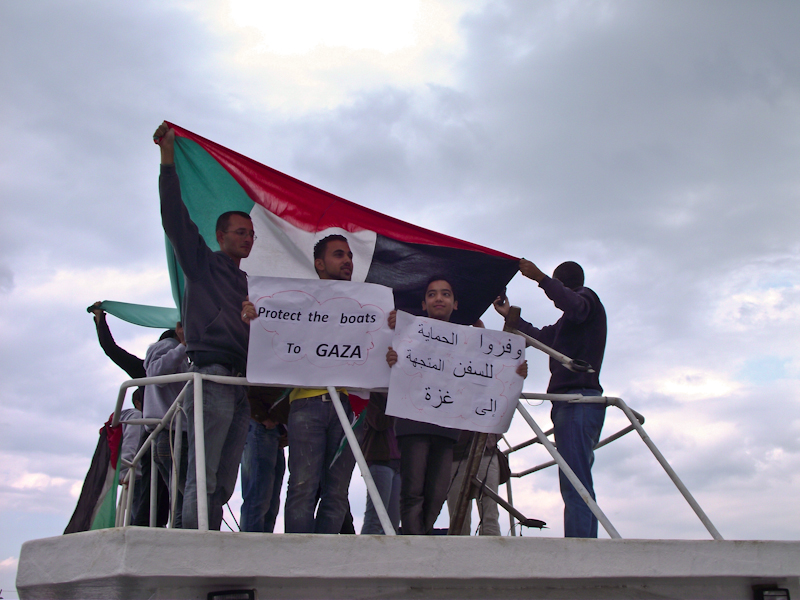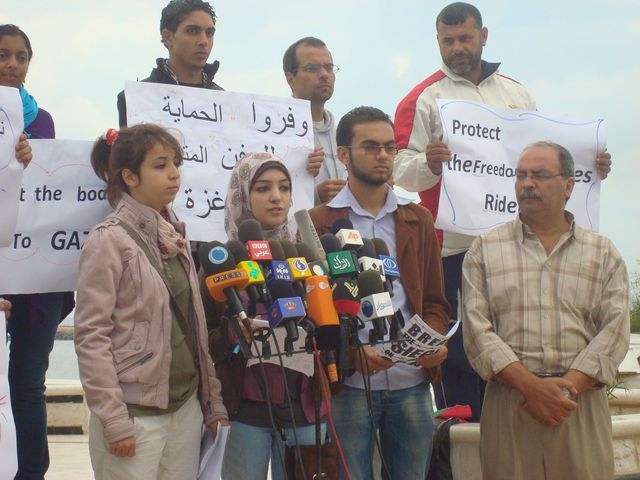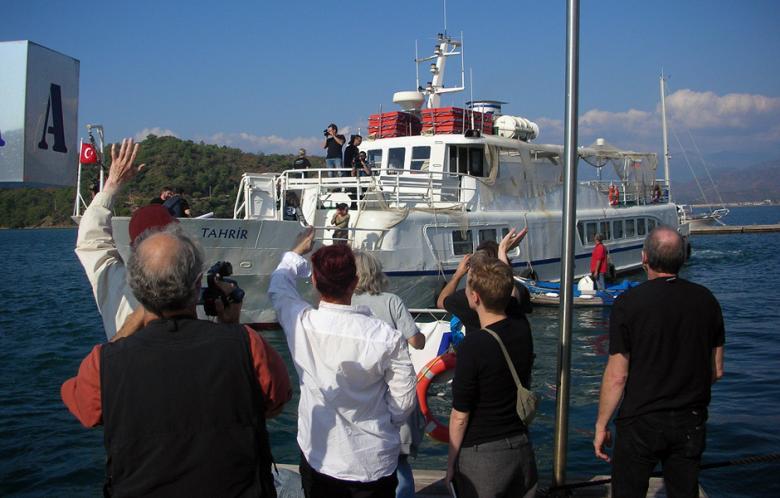Tag: Gaza
-
In Photos: Palestinians gather support for #FreedomWaves and ending blockade of Gaza
by Alistair George and Ben Lorber Canadian and Irish ships sailing with Freedom Waves to Gaza were illegally boarded by the Israeli military in international waters yesterday afternoon. The Israeli military stated that “Upon arrival of the vessels at the Ashdod port, the activists will be transferred to the custody of the Israel Police and…
-
Palestinians gather in Gaza Seaport to support Freedom Waves flotilla
by Joe Catron 5 November 2011 | International Solidarity Movement, Gaza Dozens of Palestinian civil society leaders, fishermen, youth, and international activists gathered in the Gaza Seaport Friday morning to support the Freedom Waves flotilla. Participants included representatives of the Fishing and Marine Sports Association and the Palestinian NGO Network (PNGO), as well as Palestinian…
-
Activists react to Gaza flotilla assault
by Ruqaya Izzidien 4 November 2011 | Al Akhbar English Palestine activists call on the international community to keep pressuring Israel to end the blockade of Gaza after the Freedom Waves flotilla was assaulted by Israel in international waters. Gaza — Palestinian activists have condemned the Israeli navy’s assault on the Freedom Waves to Gaza…



